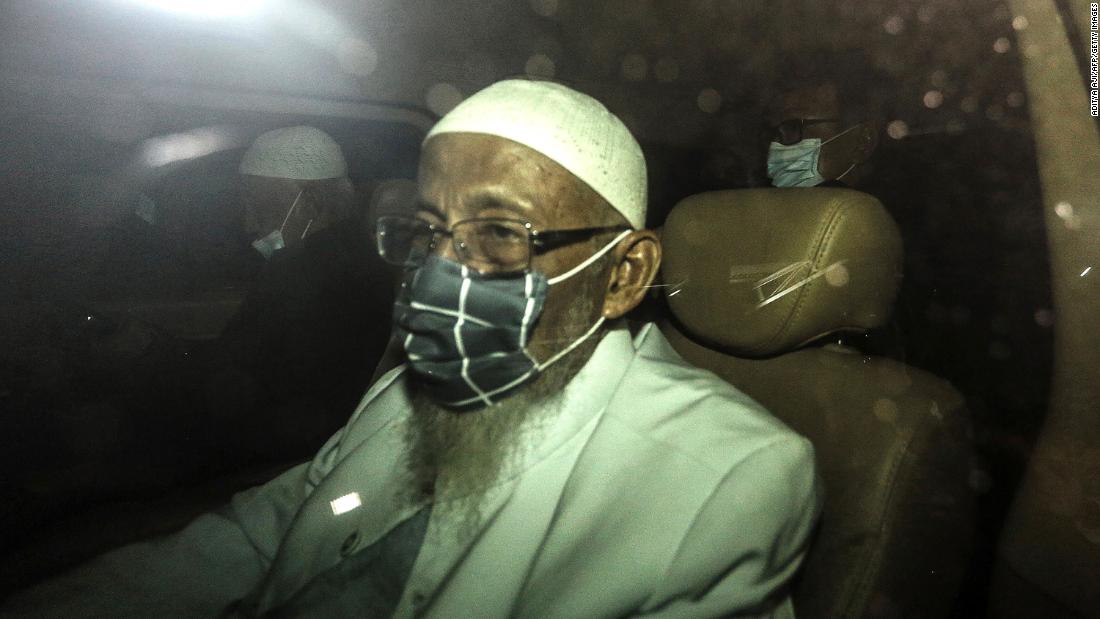
Bashir was picked up by his family and taken to his home in central Java, a spokeswoman for the corrections directorate general of the ministry of law and human rights said.
The photographs showed him in a white robe, a white cap and a mask as he was leaving Bogor prison in southern Jakarta.
“Abu Bakar Bashir was released from Gunung Sindur prison at 5.30am,” spokeswoman Rika Aprianti told reporters, adding that she was healthy on her release.
Bashir, 82, considered the spiritual leader of Jemaah Islamiah (JI), an al-Qaeda-linked jihadist network, was jailed in 2011 for 15 years for his links to a militant training camp in the province of Aceh.
After receiving periodic reductions from his prison term, he served ten years in prison.
Although Indonesian police and Western intelligence agencies say Bashir was linked to the Bali attacks that killed 202 people and the 2003 attack on the JW Marriott Hotel in Jakarta, he was never convicted. by them and denied these links.
The Bali bombings killed 88 Australians and the country’s foreign minister, Marise Payne, said this week that Indonesia must ensure that Bashir does not incite further violence.
Thiolina Marpaung, an Indonesian wounded in the 2002 attacks, said she wanted authorities to continue to monitor Bashir.
“We don’t know what he was doing in prison,” he said over the phone. “The government must demand control of Indonesian terrorist actors who have been out of prison.”
Bashir pledged allegiance to the Islamic State in 2014 while in prison.
Eddy Hartono, of Indonesia’s anti-terrorism agency, said Bashir would now go through a radicalization program.
“We hope that Abu Bakar Bashir, after being free, can make peaceful and calming sermons,” he said in a statement.
Following the attacks in Bali and with the support of Australia and the United States, Indonesia created an elite anti-terrorist unit that weakened JI and led to the arrest or death of alleged militants.
But since then, other extremist groups have formed and directed attacks on the world’s Muslim-majority country and just last month police arrested 23 militants, including Zulkarnaen.
Abdul Rohim, Bashir’s son, told Reuters before the release that his father would return to the Islamic boarding school Al Mukmin, near Solo, in the central province of Java, which Bashir founded in the 1970s and which its graduates in the past have been linked to attacks.
“He has completed his term. This is over,” said Rohim, who added that he would lead Islamic preaching.
Security analysts say that while Bashir does not exercise as much power over JI or other groups, he could still influence other militants.
“Bashir is an ideologue, his words will be followed and examples will be made,” said analyst Stanislaus Riyanta.